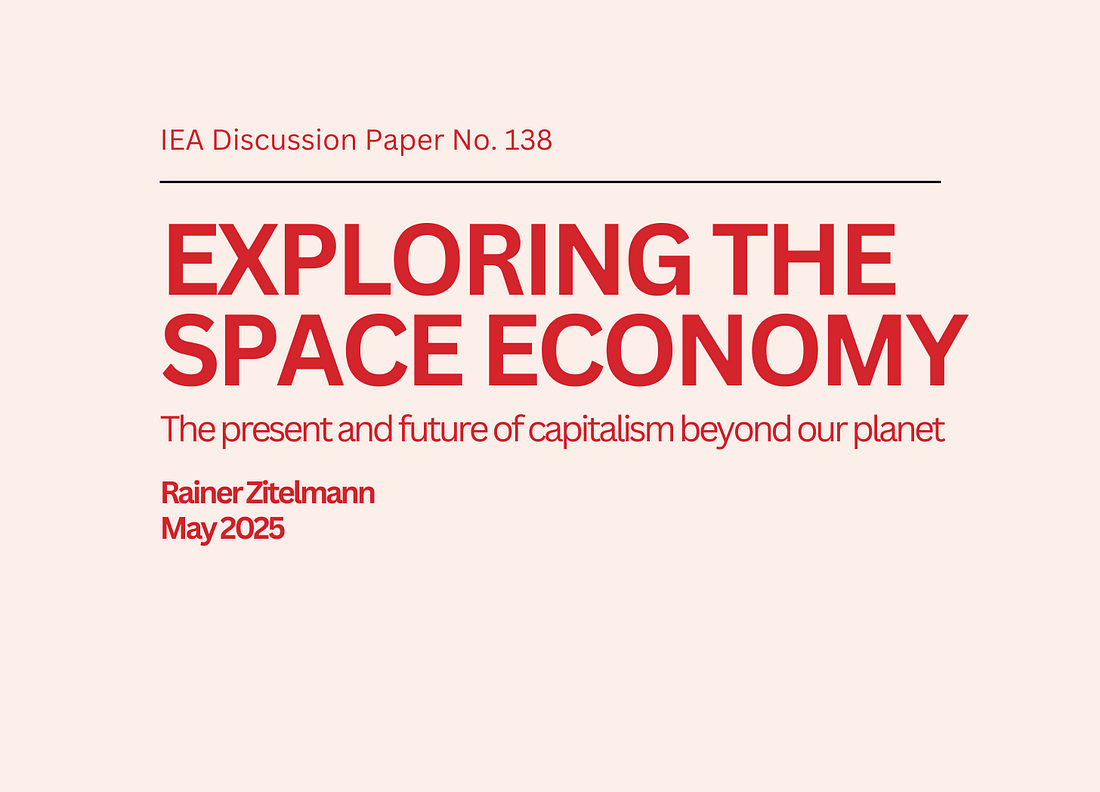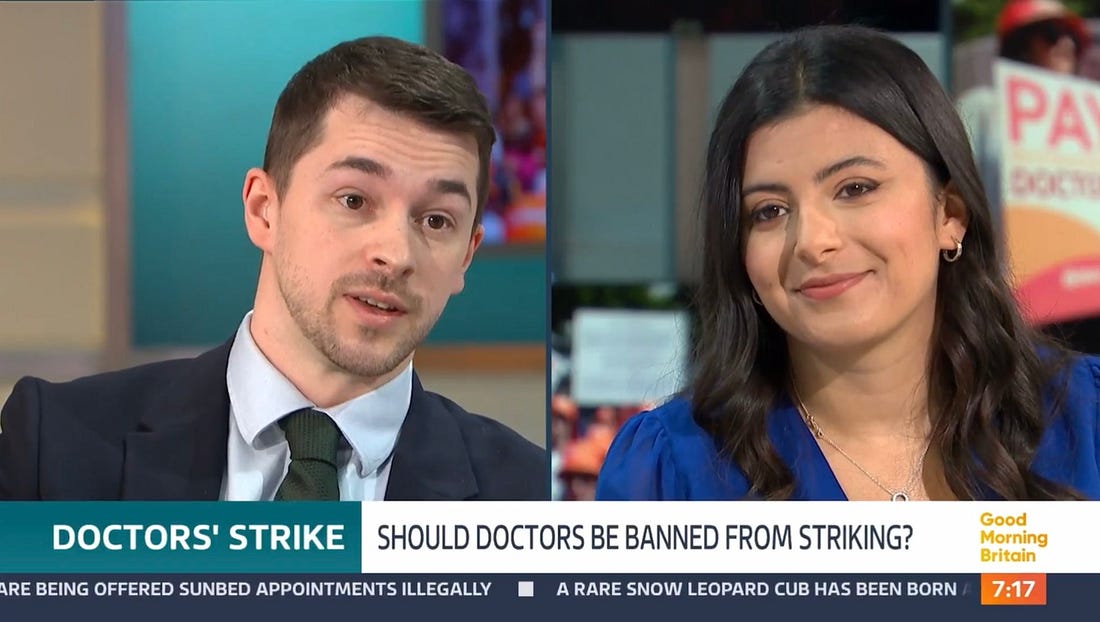|
In ten days, the government will announce the results of the first multi-year spending review since the pandemic. In principle, the overall ‘spending envelope’ has already been set; this review will simply allocate that spending to different departments and activities.
It’s quite common at these reviews for the government to ‘top up’ spending in the short term, while penciling in greater fiscal discipline towards the end of the forecast period – the natural result of fiscal rules that mean you are trying to hit a target which is always five years away.
However, given the Chancellor’s limited headroom against those fiscal rules – and the possibility that borrowing costs, growth downgrades, and below-expectation tax receipts have already eaten that headroom up – even the customary short-term generosity may be in short supply.
As a result, hard choices need to be made. In research published today, the Institute for Fiscal Studies points out that higher spending on health, defence, and capital investment will necessarily require real terms cuts elsewhere – “ruthless prioritisation” will be needed.
I would go further. It’s been a quarter of a century since we ran a budget surplus, despite the tax burden being at a record high. And an ageing population means things are going to get much worse over time if we simply maintain current policy settings. Genuine radicalism is required.
We are told that the current spending review will offer a root-and-branch, zero-base review of public spending. But it won’t. What we will see in ten days will be the same old tinkering around the edges – the same old ‘extend and pretend’ – that we’ve had for the last fifteen years.
Coalition-era ‘austerity’ never grappled with the real problem – that the state simply tries to do far too much. Instead, it ran down some parts of the public sector (including core functions like policing and the courts) in order to push more money towards pensioners and a dysfunctional National Health Service. As things stand, I expect more of the same.
We need to rethink what the state does and how it does it – and transition to a public sector that employs fewer people to do fewer things. A meaningful spending review would start by listing everything the government does, rank those activities by importance and effectiveness, and then fund down the list until the money runs out. Anything that doesn’t make the cut should be shut down, or left to the private sector.
That sort of approach obviously sits uneasily alongside the inherent short-termism of elected politics. But without bold action, we will be stuck with an ever-larger, less effective state – and a precarious fiscal future.
Tom Clougherty
Executive Director
P.S. Earlier this week, I discussed the upcoming spending review with Kamal Ahmed and Tim Stanley on The Daily T podcast.
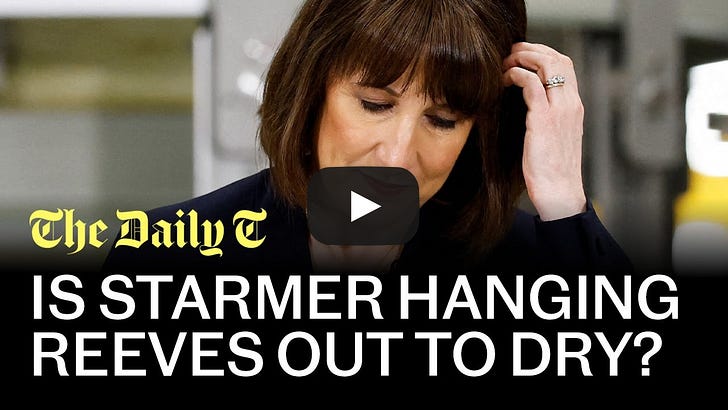
The best way to never miss out on IEA work, get access to exclusive content, and support our research and educational programmes is to become a paid IEA Insider.
IEA Podcast: Communications Manager Reem Ibrahim, Executive Director Tom Clougherty, and Editorial Director Kristian Niemietz discuss Reform UK’s family tax plans, the looming threat of junior doctor industrial action, and the space economy, IEA YouTube
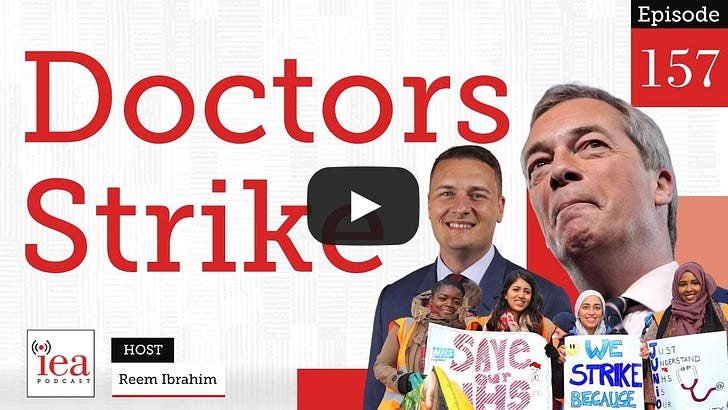
The Space Economy
The new space race between the US and China has already started, and Governments should embrace private enterprise.
Private companies, such as Elon Musk’s SpaceX, now account for 82% of space industry revenues, with government and military sectors making up the remainder.
Regulatory and bureaucratic obstacles remain the biggest threat to further expansion.
A more liberalised policy framework is paramount to competing with China.
A new review of literature on the space economy, published by the Institute of Economic Affairs (IEA), highlights the rapid expansion of private enterprise in space exploration and its potential to outpace traditional government-led initiatives.
Exploring the Space Economy, by Dr. Rainer Zitelmann, outlines how market-driven innovation is lowering costs, accelerating technological breakthroughs, and making space more accessible than ever before. With estimates suggesting that the space industry could be worth $1.8 trillion by 2035, the report argues that regulatory barriers must be minimised to allow competition and entrepreneurship to flourish.
How capitalism will conquer space, author Dr Rainer Zitelmann writes in CityAM
Brexit freedoms could put rocket under UK in new space race, The Express
Space race offers $1.8trn, The Times (Print)
News and Views
Executive Director Tom Clougherty is quoted in The Telegraph on the Reform Party’s plans to introduce transferable tax allowances.
Tom Clougherty, executive director at the Institute of Economic Affairs, said: “I do think it is good tax policy. As things stand, two households with the same overall income can pay wildly different amounts of tax based on how that income is distributed between partners. That seems unjust.”
Director of Communications Callum Price interviews Robert Jenrick MP about barriers to economic growth in the UK, IEA YouTube
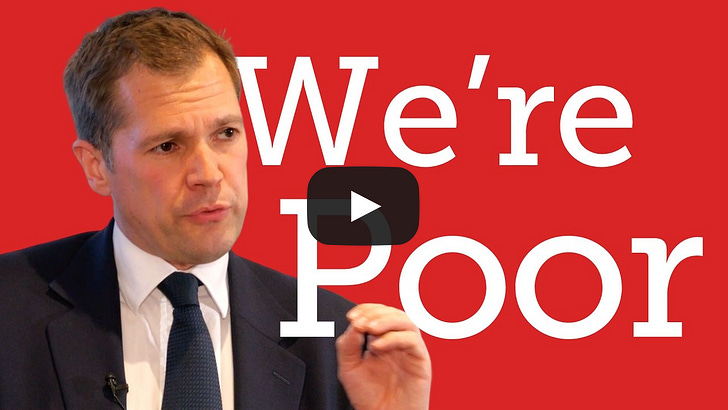
Politicians like to claim they will take the tough decisions, but they’re shying away from necessary action on the Triple Lock, argues Callum Price in Conservative Home
Badenoch made some good points about means testing but was quick to clarify she wouldn’t be looking at the triple lock when attacked by both Labour and Reform. Farage recently declined to be drawn on the triple lock, but the aforementioned attack against Badenoch gives a good sense of Reform’s commitment to it. And the Government remains committed to it, with even former critic Torsten Bell going native in the Treasury. The Liberal Democrats? The triple lock was their idea.
Communications Manager Reem Ibrahim appeared on Good Morning Britain to discuss the threat of industrial reaction from junior doctors, ITV Good Morning Britain
Your Professor Lied to You About Capitalism | Yaron Brook | IEA Live, IEA YouTube
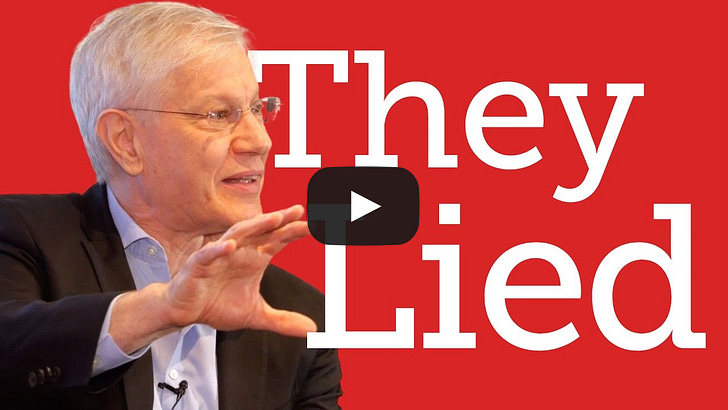
EU deal risks stifling the UK’s thriving gene editing sector, the IEA’s Matthew Bowles writes for CityAM
You’re currently a free subscriber to Insider. For the full experience, upgrade your subscription.
Paid subscribers support the IEA's charitable mission and receive special invites to exclusive events, including the thought-provoking IEA Book Club.
We are offering all new subscribers a special offer. For a limited time only, you will receive 15% off and a complimentary copy of Dr Stephen Davies’ latest book, Apocalypse Next: The Economics of Global Catastrophic Risks.
